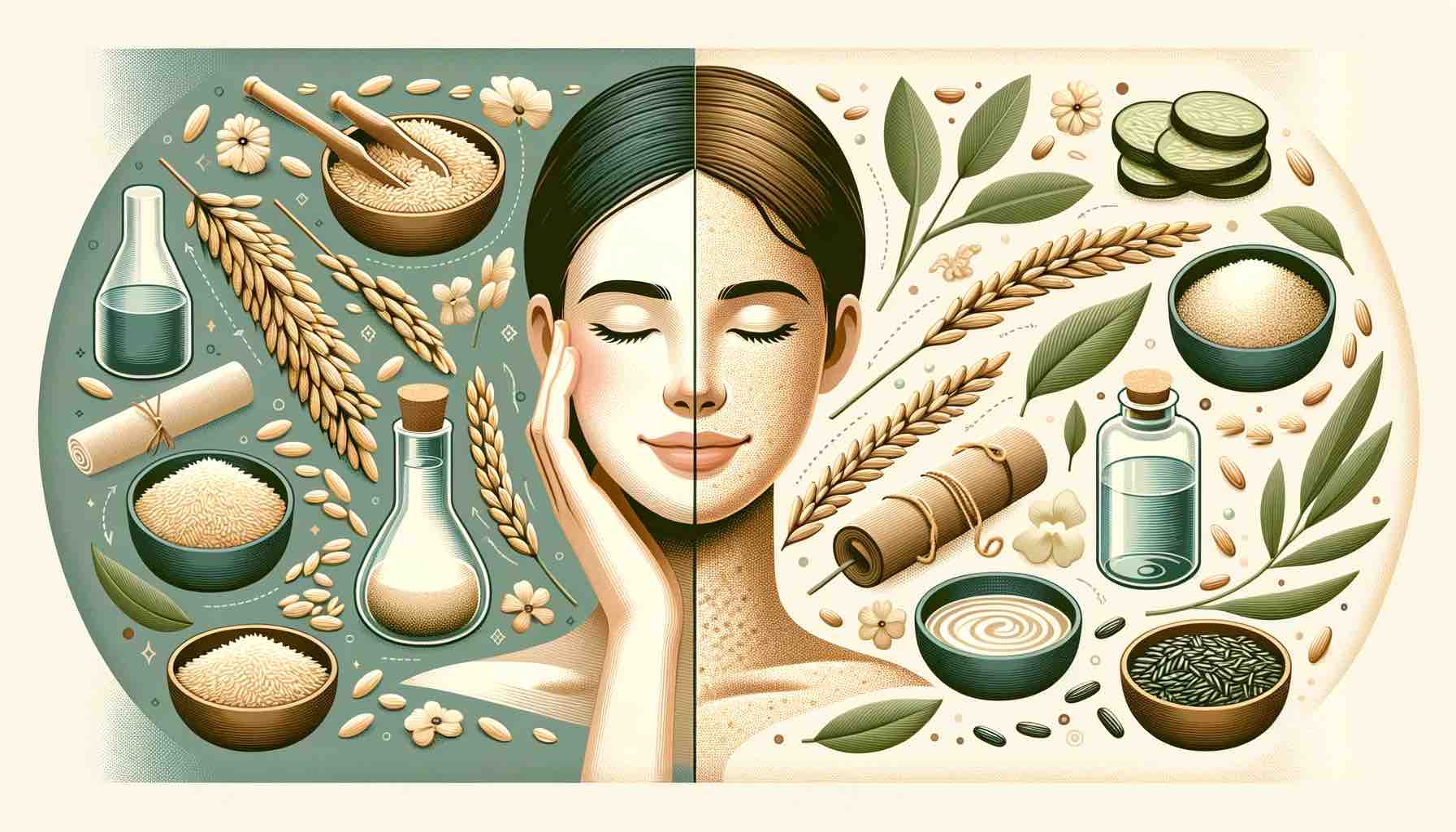
Eczema, a relentless skin condition marked by inflammation, redness, and itchiness, often demands a multifaceted approach to management and care. Various elements, including environmental factors and dietary habits, profoundly influence the frequency and intensity of eczema flare-ups. Dr. Alex Hui, an expert in Traditional Chinese Medicine (TCM), offers a wealth of knowledge on managing eczema through dietary strategies in his enlightening video “AVOID These 4 Foods to Prevent ECZEMA Flare Up”. In this video, Dr. Hui meticulously unpacks the TCM perspective on foods that potentially escalate eczema symptoms, guiding viewers on what to avoid.
Traditional Chinese Medicine (TCM) and Eczema
TCM interprets eczema as a manifestation of internal imbalances, predominantly revolving around concepts of dampness and heat within the body. These imbalances are pivotal contributors to the inflammation and discomfort experienced in eczema. Understanding and addressing these aspects can be instrumental in managing eczema more effectively.
Foods: The Culprits and The Soothers
Dr. Hui emphasizes the significance of diet in managing eczema, outlining specific foods that tend to exacerbate the condition. Here’s a detailed exploration of his dietary recommendations:
- Shellfish: Shellfish, such as shrimp and crab, are seen as promoters of damp toxins within the body. Their consumption could potentially aggravate eczema symptoms, making them foods to approach with caution.
- Spices: Spices, especially potent ones like chili and black pepper, are identified as heat-inducing foods. They can intensify the internal heat, contributing to the worsening of eczema symptoms.
- Certain Fruits: Fruits like pineapple and mango are believed to foster dampness and heat in the body. Their consumption might not be suitable for individuals navigating eczema, as per TCM principles.
- Uncertain Ingredients: Foods with ambiguous ingredients, especially those containing various spices and preservatives, should be consumed judiciously to prevent unexpected flare-ups.
Caption: Dr. Alex Hui elucidates the TCM perspective on managing eczema through diet, providing detailed guidance on foods to avoid. Watch the full video here.
Credits: Video by Dr. Alex Hui
Further Reading for a Deeper Dive into Eczema Management
- Explore the healing pathways of eczema naturally, delving into holistic approaches and remedies.
- Uncover the intricate relationship between foods and eczema, gaining insights from gut health expert Dr. Chanu Dasari, MD.
- Dive into the world of biologics and explore their transformative role in eczema treatment.
FAQs
- What is the Traditional Chinese Medicine (TCM) perspective on eczema? TCM views eczema as a condition often caused by internal imbalances, particularly involving aspects such as dampness and heat within the body. Addressing these imbalances through various approaches, including dietary adjustments, is essential in managing eczema symptoms effectively.
- Why does TCM advise against the consumption of shellfish for eczema sufferers? Shellfish like shrimp and crab are believed to promote damp toxins in the body, which could potentially worsen eczema symptoms. Avoiding these foods might help in managing the condition better.
- How do spices influence eczema according to TCM? Potent spices, such as chili and black pepper, are considered heat-inducing foods in TCM. Consuming these spices might intensify internal heat, contributing to the exacerbation of eczema symptoms.
- Are there specific fruits that individuals with eczema should avoid? Certain fruits like pineapple and mango are thought to foster dampness and heat in the body, which might not be suitable for individuals dealing with eczema, as per TCM principles.
- Why is it essential to be cautious with foods containing ambiguous ingredients? Foods with uncertain ingredients, especially those laden with various spices and preservatives, might trigger unexpected eczema flare-ups due to potential sensitivities or reactions.
- How does the video by Dr. Alex Hui contribute to understanding eczema management? Dr. Hui’s video offers a wealth of knowledge from a TCM perspective, guiding viewers on dietary strategies that could be instrumental in managing eczema more effectively.
- What are some key takeaways from Dr. Hui’s video on managing eczema? Dr. Hui emphasizes the significance of diet in managing eczema, outlining specific foods that may escalate the condition and providing guidance on what to avoid for better management.
- How does TCM interpret the role of diet in eczema management? TCM underscores diet as a pivotal element in managing eczema, focusing on the avoidance of foods that exacerbate internal imbalances, contributing to symptom flare-ups.
- Where can I find more resources on managing eczema from various perspectives? The further reading section in the blog post provides a curated list of resources offering diverse insights into holistic and effective eczema management strategies.
- How can the embedded video enhance my understanding of eczema management through diet? The embedded video serves as a visual and auditory guide, allowing viewers to engage with Dr. Hui’s expertise, gaining a more nuanced understanding of dietary strategies in eczema management.
Food and Eczema: Navigating the Dietary Landscape for Eczema Management
Navigating through the myriad of dietary advice available for managing eczema can be a daunting task. However, understanding the intrinsic relationship between the foods we consume and the manifestation of eczema symptoms is crucial. Here, we delve into a curated selection of insights and guidance from various perspectives, focusing on the impact of diet on eczema.
Foods to Avoid for Eczema: Insights from Gut Health Expert Dr. Chanu Dasari MD
Dr. Chanu Dasari shares his expertise on gut health and its relationship with eczema. This resource provides a comprehensive look at foods that may exacerbate eczema symptoms and offers practical advice on navigating dietary choices to manage the condition better.
Healing Eczema Naturally: A Comprehensive Guide
Explore a holistic approach to managing eczema, focusing on natural remedies and dietary adjustments. This guide offers a wealth of information on foods that may help soothe and manage eczema symptoms, promoting a path towards healing.
Biologics for Eczema: A New Era of Eczema Treatment
Dive into the world of biologics and their transformative potential in eczema treatment. This post also touches on dietary considerations, providing a well-rounded perspective on managing eczema through various approaches, including nutrition.
The Role of Sugar in Eczema: An In-depth Exploration
Uncover the intricate relationship between sugar consumption and eczema. This post delves into the impact of sugar on the body and its potential role in exacerbating eczema symptoms, guiding readers on making informed dietary choices.
Tea Tree Oil and Eczema: A Natural Remedy Explored
Discover the potential benefits of tea tree oil as a natural remedy for managing eczema. This post explores the versatile uses of tea tree oil, providing insights into its application in soothing and managing eczema symptoms.
Apple Cider Vinegar and Eczema: A Dive into Natural Healing
Explore the therapeutic potential of apple cider vinegar in managing eczema. This resource offers a detailed exploration of how apple cider vinegar can be integrated into one’s routine to help manage and alleviate eczema symptoms.
Navigating through these resources provides a multifaceted view of managing eczema through dietary and natural remedies. Each post offers unique insights, whether it’s uncovering the role of specific foods, exploring natural remedies, or delving into innovative treatments, providing readers with a comprehensive understanding of managing eczema holistically and effectively.
Blog Tags eczema, Traditional Chinese Medicine, diet, eczema management, Dr. Alex Hui, dietary strategies, foods to avoid, eczema flare-ups, internal imbalances












